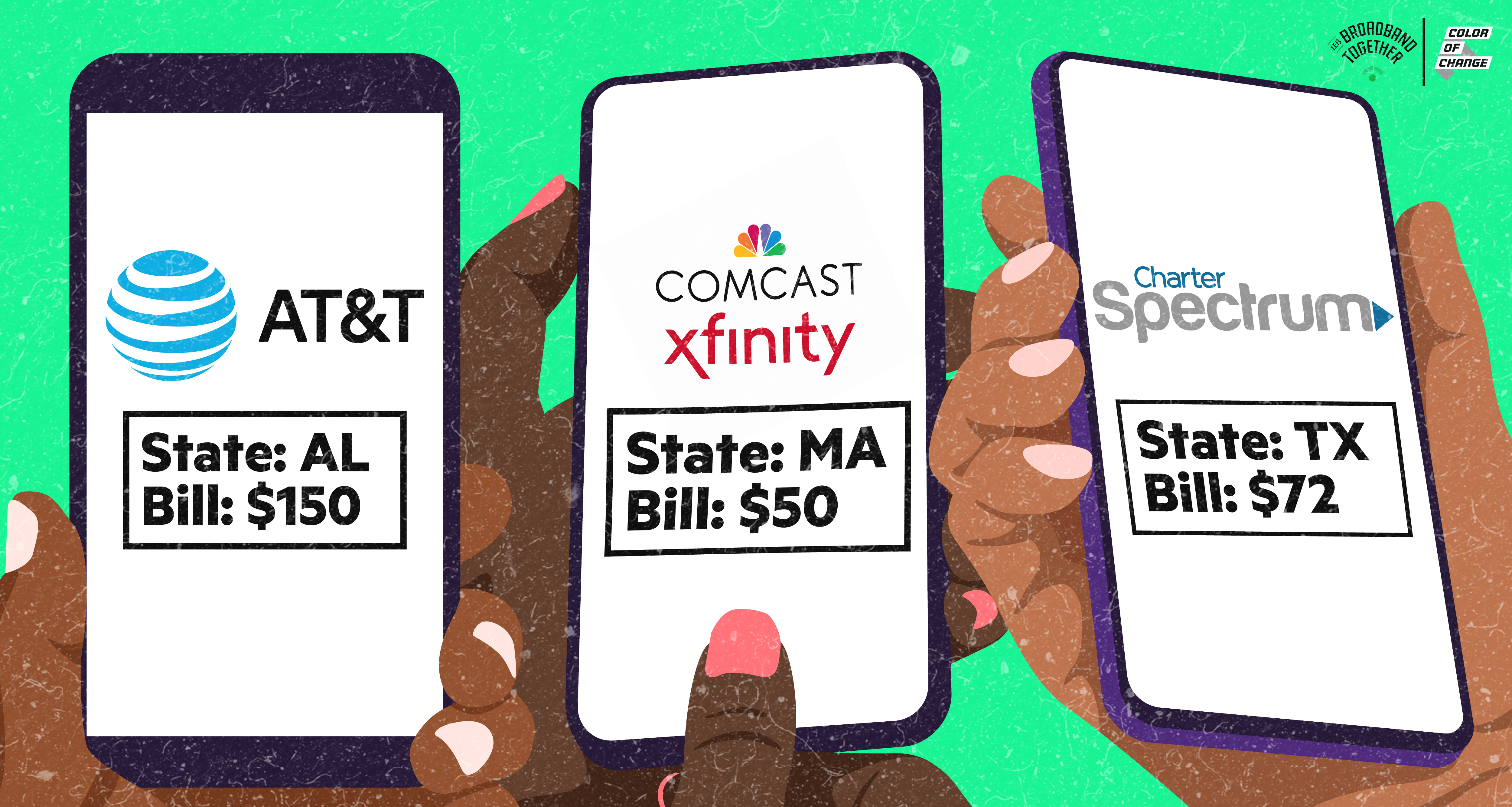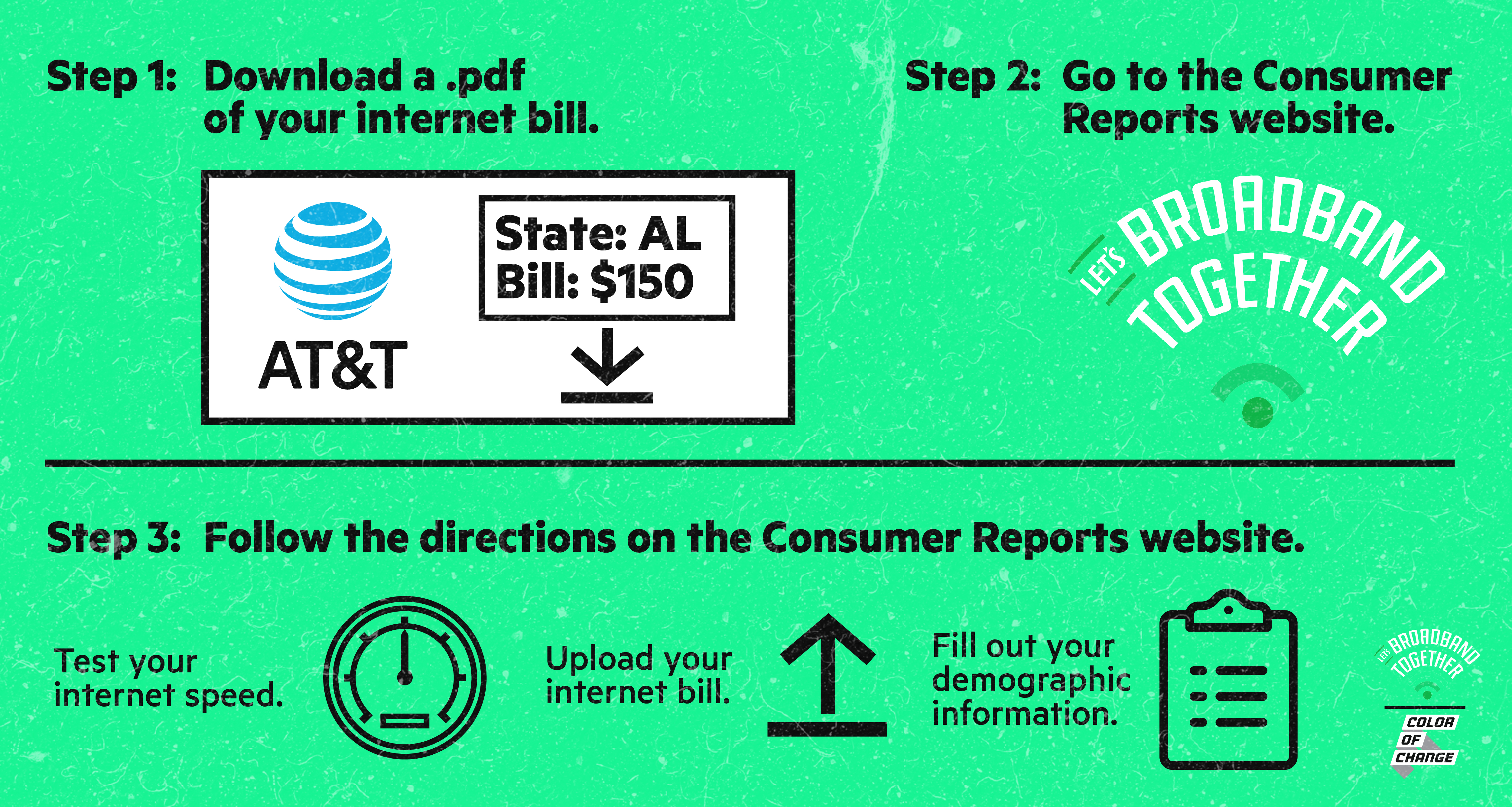John,
As the COVID-19 pandemic rages on, many people must work from home and many children must use online learning to keep up with their schooling. The need for affordable and fast internet has never been greater. However, historical injustices continue to deny Black families from this critical utility.
Despite the great need for excellent internet access, there are several states facing restrictions to affordable and fast internet at home.1 These restrictions are known as digital redlining, a term that stems from the state-sponsored segregation of Black people that excluded us from mortgages, and prevented home ownership and the accumulation of generational wealth.2 Internet service providers (ISPs), such as Xfinity from Comcast or Verizon Fios, do not invest in historically redlined areas under the excuse that they are not profitable.3 Meanwhile, ISPs raked in billions in revenue during the pandemic.4,5
Digital redlining has given rise to racial disparities: where 8.7% of Black Americans with computers do not have access to internet services. This disparity is even starker in the Black rural South where 17.1% of Black Americans with computers do not have access to internet services, while this is true for only 11.3% of white Americans.6 Even with access, those who do not have options between ISPs end up paying more for internet services; a recent study by Consumer Reports indicates that the median monthly broadband bill for areas with only one provider is about $75, while the cost for areas with a choice of three providers drops to $68.7
Digital redlining is further exacerbating economic injustices. Without internet access, Black people cannot gain access to opportunities like the ability to search and apply for jobs online, pay bills online, or schedule appointments for COVID-19 vaccinations.
You can help put an end to digital redlining. Color Of Change has partnered with Consumer Reports to investigate the racial disparities caused by digital redlining. All you have to do is upload your broadband bill, which will take just about 7 minutes of your time. By collecting more information on what communities are paying for internet, we will be better able to advocate for fast and affordable broadband.
The future of fast and affordable broadband could mean pushing legislators to treat internet service as a utility, like electricity or gas. But we need your help to get there. Upload your broadband bill below and/or help sustain our fight against digital redlining.
Until justice is real,
Jade Magnus Ogunnaike and the Color Of Change team
References:
- Tyler Cooper, “Municipal Broadband Is Restricted in 18 States Across the U.S. in 2021,” BroadbandNow, May 3, 2021, https://act.colorofchange.org/go/319982?t=7&akid=52213%2E4731121%2E8CX-kT.
- Camila Domonoske, “Interactive Redlining Map Zooms In on America’s History of Discrimination,” NPR, October 19, 2016, https://act.colorofchange.org/go/319983?t=9&akid=52213%2E4731121%2E8CX-kT.
- Shara Tibken, “The broadband gap’s dirty secret: Redlining still exists in digital form,” CNET, June 28, 2021, https://act.colorofchange.org/go/319984?t=11&akid=52213%2E4731121%2E8CX-kT.
- “Charter Communications,” Fortune, August 2, 2021, https://act.colorofchange.org/go/319985?t=13&akid=52213%2E4731121%2E8CX-kT.
- Lillian Rizzo, “Comcast’s Profit Soars Amid Broadband, Wireless Growth,” The Wall Street Journal, April 29, 2021, https://act.colorofchange.org/go/319986?t=15&akid=52213%2E4731121%2E8CX-kT.
- Dominique Harrison, “Expanding Broadband in the Black Rural South,” Joint Center for Political and Economic Studies, July 9, 2021, https://act.colorofchange.org/go/319987?t=17&akid=52213%2E4731121%2E8CX-kT.
- James K. Willcox, “Millions of Americans Lack Fast Internet Service, CR Survey Shows,” Consumer Reports, August 10, 2021, https://act.colorofchange.org/go/319988?t=19&akid=52213%2E4731121%2E8CX-kT.

Color Of Change is building a movement to elevate the voices of Black folks and our allies, and win real social and political change. Please help keep our movement strong.


